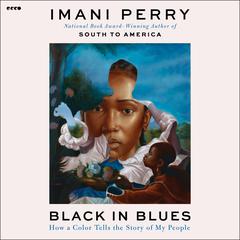 Play Audiobook Sample
Play Audiobook Sample
Orwell's Roses Audiobook
 Play Audiobook Sample
Play Audiobook Sample
Quick Stats About this Audiobook
Total Audiobook Chapters:
Longest Chapter Length:
Shortest Chapter Length:
Average Chapter Length:
Audiobooks by this Author:
Publisher Description
“An exhilarating romp through Orwell’s life and times and also through the life and times of roses.” —Margaret Atwood “Nobody who reads it will ever think of Nineteen Eighty-Four in quite the same way.”—Vogue A lush exploration of roses, pleasure, and politics, and a fresh take on George Orwell as an avid gardener whose political writing was grounded in his passion for the natural world “In the year 1936 a writer planted roses.” So begins Rebecca Solnit’s new book, a reflection on George Orwell’s passionate gardening and the way that his involvement with plants, particularly flowers, and the natural world illuminates his other commitments as a writer and antifascist, and the intertwined politics of nature and power. Sparked by her unexpected encounter with the surviving roses he planted in 1936, Solnit’s account of this understudied aspect of Orwell’s life explores his writing and his actions—from going deep into the coal mines of England, fighting in the Spanish Civil War, critiquing Stalin when much of the international left still supported him (and then critiquing that left), to his analysis of the relationship between lies and authoritarianism. Through Solnit’s celebrated ability to draw unexpected connections, readers encounter the photographer Tina Modotti’s roses and her Stalinism, Stalin’s obsession with forcing lemons to grow in impossibly cold conditions, Orwell’s slave-owning ancestors in Jamaica, Jamaica Kincaid’s critique of colonialism and imperialism in the flower garden, and the brutal rose industry in Colombia that supplies the American market. The book draws to a close with a rereading of Nineteen Eighty-Four that completes her portrait of a more hopeful Orwell, as well as a reflection on pleasure, beauty, and joy as acts of resistance.
Download and start listening now!
Orwell's Roses Listener Reviews
Be the first to write a review about this audiobook!
About Rebecca Solnit
Rebecca Solnit, writer, historian, and activist, is the author of more than twenty books on feminism, western and indigenous history, popular power, social change and insurrection, wandering and walking, hope and disaster. Call Them by Their True Names won the 2018 Kirkus Prize for Nonfiction. River of Shadows: Eadweard Muybridge and the Technological Wild West won the Lannan Literary Award and the National Book Critics Circle Award for criticism. A product of the California public education system from kindergarten to graduate school, she is a columnist at the London Guardian and a regular contributor to Literary Hub.





























